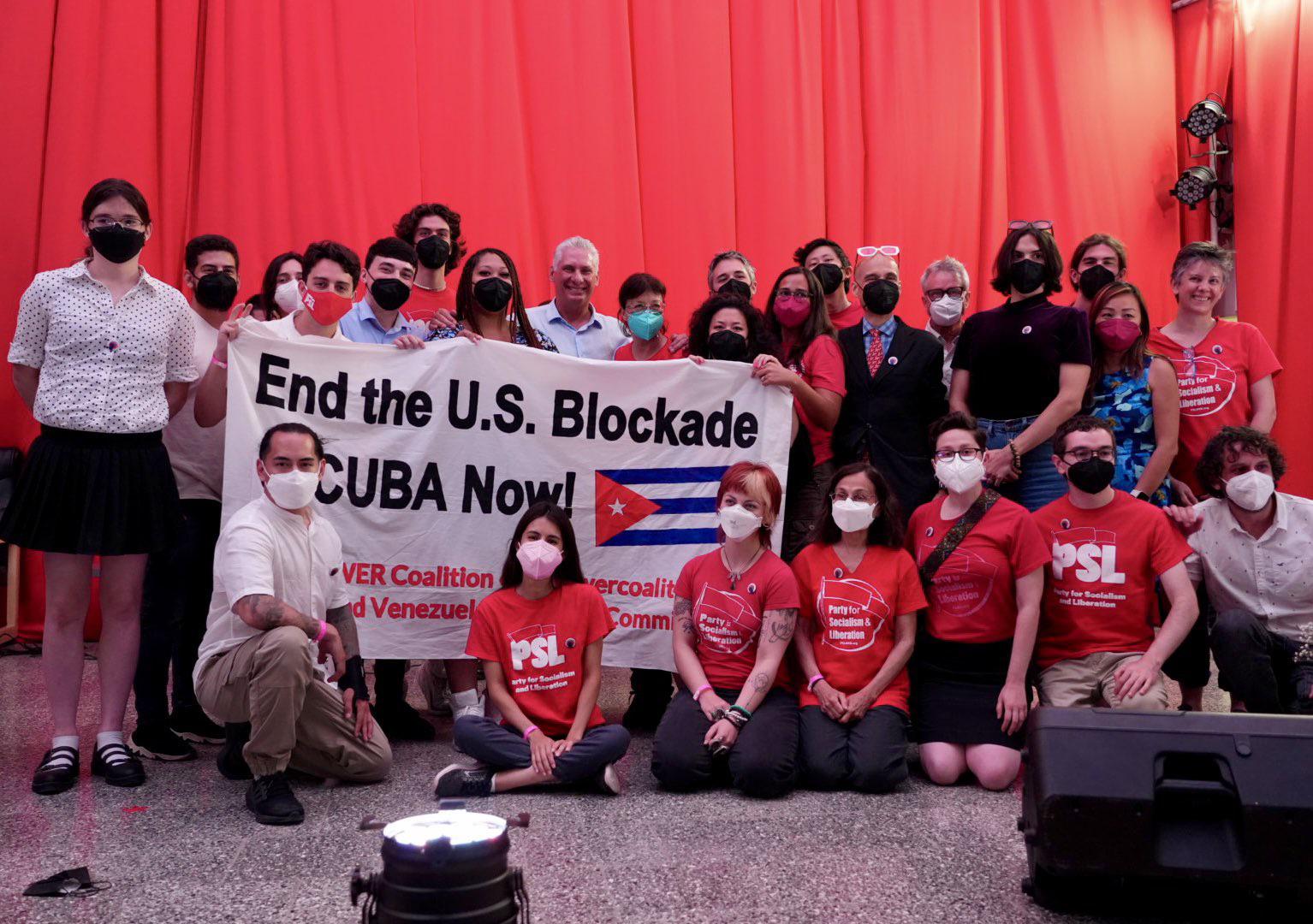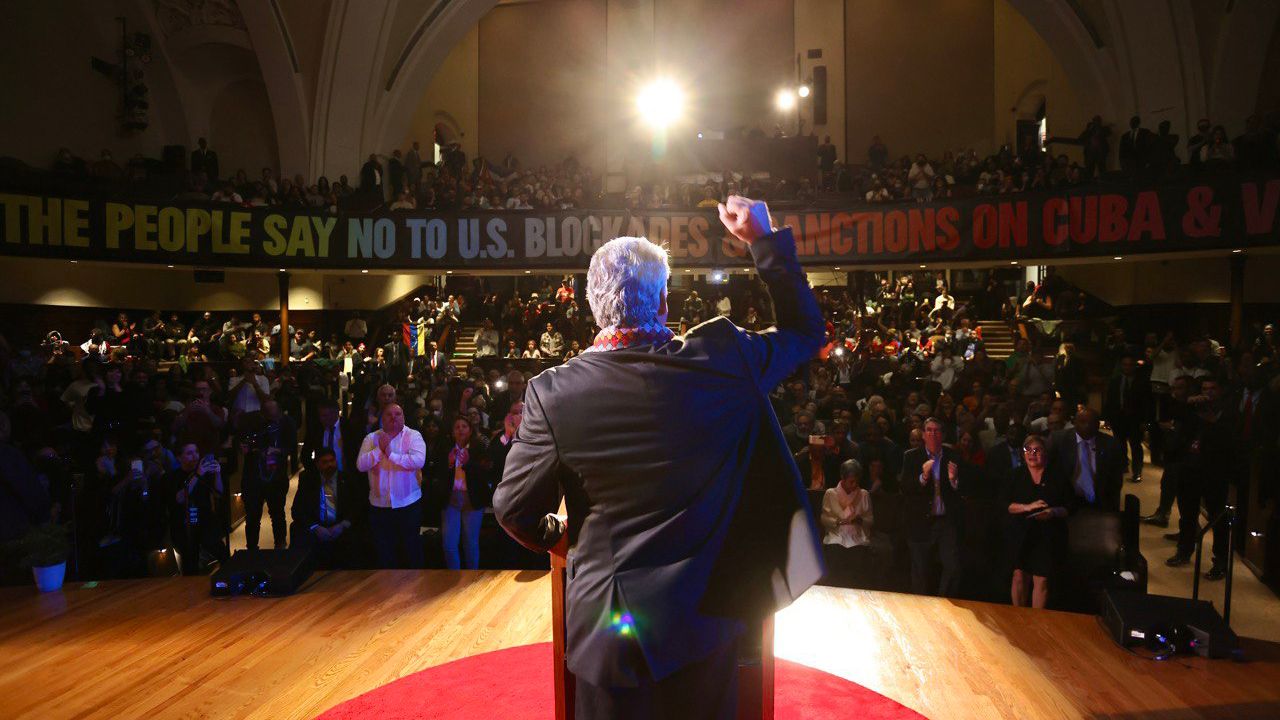Cuban President Miguel Díaz-Canel's recent visit to the United Nations 78th General Assembly sparked hope and solidarity among activists in the United States. During this visit, Díaz-Canel engaged with US revolutionaries and advocates for ending the US blockade against Cuba and removing Cuba from the State Sponsors of Terrorism list. This article explores Díaz-Canel's impassioned address in New York, highlighting the crippling impact of the US blockade, and frames this event as part of the ongoing struggle against Western imperialism and capitalist oppression.
In a powerful event called "Voices of Dignity," Díaz-Canel joined forces with Venezuelan Foreign Affairs Minister Yván Gil Pinto, historian Vijay Prashad, and Cuban-trained physician Dr. Samira Addrey to emphasize the urgency of lifting coercive measures against Cuba and Venezuela. The event featured cultural performances by artists like rapper Linqua Franqa and Latin jazz musician Arturo O’Farrill.
Díaz-Canel illuminated the devastating consequences of the US blockade, revealing how it had hindered access to critical medical supplies during the COVID-19 pandemic. He stressed the importance of fighting for a better world and maintaining the socialist system that many generations of Cubans have sacrificed for.
Venezuelan Foreign Affairs Minister Yván Gil Pinto also voiced concerns about US military threats in his country, underscoring the need for diplomatic solutions to border disputes.
Dr. Samira Addrey highlighted Cuba's humanitarian efforts, particularly in training doctors and sending medical brigades worldwide. These actions, rooted in solidarity, stand in stark contrast to imperialist agendas.
Vijay Prashad drew a clear distinction between those who advocate for sanctions and oppression and those who embrace socialism and human well-being. He emphasized that revolutionaries love life and humanity, whereas oppressors thrive on suffering and conflict.
During this visit, the Cuban President paid homage to Malcolm X, honoring the historic meeting between Fidel Castro and the African-American revolutionary leader in 1960. This act underscored the solidarity between the Cuban delegation and those who have challenged the US establishment's isolation of Cuba.

Díaz-Canel's address to the General Assembly highlighted Cuba's commitment to its socialist model despite facing relentless hostility from the United States.
A significant rally was organized in New York to advocate for removing Cuba from the State Sponsors of Terrorism list. In a remarkable show of solidarity, Díaz-Canel made a surprise appearance at the rally, joining the protesters in chants of "Cuba si, bloqueo no!" and expressing gratitude for their support.
The visit of Cuban President Miguel Díaz-Canel to the United Nations General Assembly served as a powerful reminder of the ongoing struggle against Western imperialism and capitalist oppression. Díaz-Canel's passionate call to end the US blockade and remove Cuba from the State Sponsors of Terrorism list resonated with activists and advocates for justice. In a world where solidarity and resistance are essential, these moments of unity strengthen the resolve to challenge the status quo and fight for a better, more progressive future.

